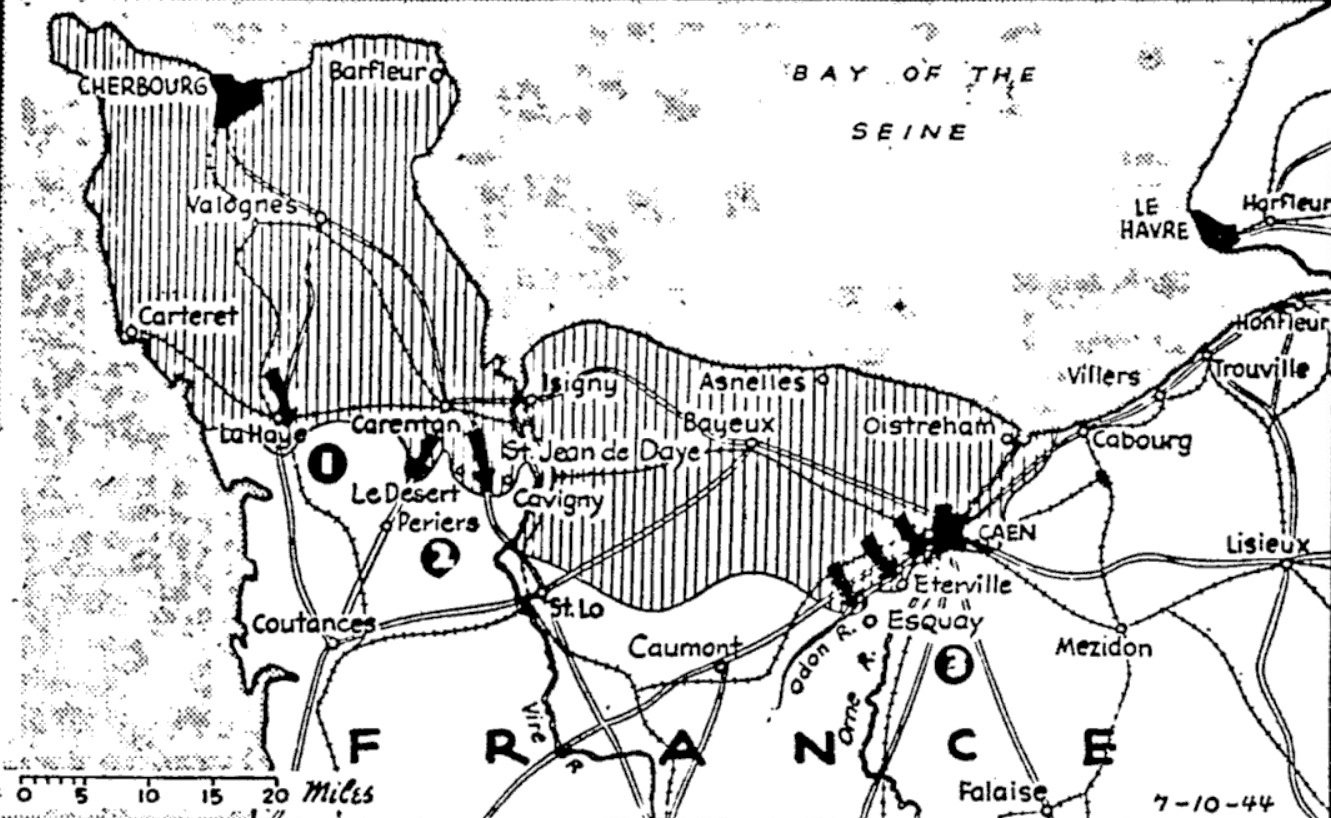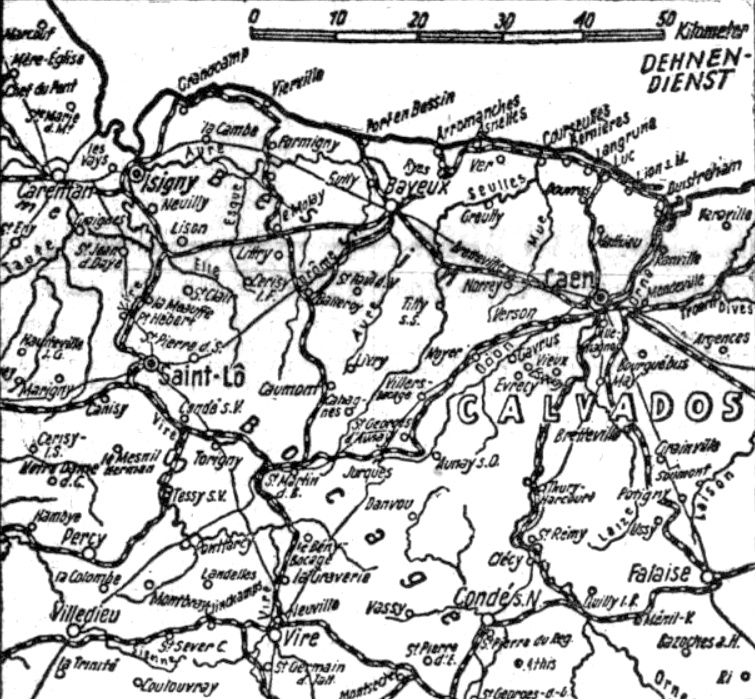Arrival of Yanks recalls Prussian-like entry of Rommel four years before
By W. C. Heinz, North American Newspaper Alliance
Cherbourg, France – (July 7, delayed)
On June 18, 1940, the mayor of Cherbourg, a thin, white-haired, white-mustached old man in a black suit, black tie and black shoes, stood with his staff on the steps of the little city hall here in the Place de la Republique and watch silently while a German tank roared up and gnashed to a halt. Four years and nine days later that same thin, old man in the same black suit, tie and shows and with his staff again around him, stood on the same step and watched while an American jeep swirled to a halt on the same spot.
Today in that same little city hall, you heard from that same chin, little man and one of the members of that same staff the story of those two days. The story that 73-year-old Dr. Paul Reynaud and 71-year-old Eugene Simon, his deputy mayor, told you, however, is also the story of the four years between, the story of two armies, and the story of the little people caught in the tide of this war.
‘Walked past us’
M. Simon said:
When the German tank halted, the top flew open and out climbed three German officers, all cleanshaven and in clean uniforms. While we stood and watched, not knowing what to do, they just walked past us and into our offices.
They said nothing to us but we could hear them talking in the mayor’s office, and then in a moment everyone outdoors snapped to attention as Gen. Rommel walked past without looking at us. We could hear Rommel shouting in the office, and then he came out, followed by the others, and again they walked past us without saying anything and drove away.
“Here we call Rommel the little man,” M. Simon said, and you could tell from the way he smiled when he said it that what the French here mean by that is only that little field marshal’s short stature.
People ignore band
Next day, however, the officers were back. They came back with orders that life was to go on as usual. Mayor Reynaud’s only comment on that was that it was a thing which was easily said.
As you sat, then, in the little office with the big desk and with chairs covered with red plush and listened to these two pale, old men with their black suits and their soft, slow way of thinking, you heard how on the next morning a Nazi military band marched into the Place de la Republique and gave its first concert in a bandstand which you could see through the window still standing there, dusty and in need of paint.
“Nobody went to hear the concert,” M. Simon said, “and after a month, the concerts stopped.”
Barges flop
You heard, too, how in a few days the Germans began building barges for the invasion of Great Britain, and how, when they put the barges into the water and loaded them with tanks in rehearsal, many barges were overturned and many tanks and German soldiers were lost.
You heard how the Germans, like children in their ignorance, actually though that the English Channel, for which their word is “canal,” was only 20 miles wide and how they went into the schoolrooms and tore down the maps, and when they saw that the Channel was 70 miles wide, they shouted in fury that the maps had been faked, and tore them up.
You heard, too, about the Nazi naval captain of the port. He was the former captain of the luxury liner Bremen who, before the war, received a gold medal from the Cherbourg Chamber of Commerce.
Commits suicide
M. Simon said:
If you want his name, you may find it in the cemetery. The Germans say that he committed suicide.
Then the two pale, old men, one wearing the Cross of Lorraine and the other the red ribbon of the Legion of Honor, told you about German planes. They told you how, in the hard fall and winter of 1940 and 1941, they watched German planes wing overhead on their way to Britain.
The mayor said:
We watched them leave by the dozens and come back in twos and threes. Then we knew that there was something over there.
After that, the two men told you, there were long years of waiting. They told of five ounces of bread a day, of no tea, no coffee, no cheese and only eight ounces of meat a month – this in the most fruitful part of France.
Nazis grow nervous
They told of the growing nervousness of the Germans at the news of the U.S. landings in France, and how they wanted to laugh and sing but couldn’t, and of the orders of evacuation, of the fight for the city, and then of how they stood in their old, black suits on the steps of the old city hall and watched the American jeep as it swirled to a stop.
You heard that when the jeep drove up the men in it were not cleanshaven and were not in bright, smart uniforms. They were grimy and dirty and there was dust on their clothes, but when they got out of the jeep, they didn’t walk stiffly past the pale, old men, but strode up to them and shook their hands.
The man who shook hands with the mayor was Lt. Col. Frank Howley of Drexel Hill, Pennsylvania, head of the Allied civil affairs unit in Cherbourg, but no one has to tell you of the civil affairs unit or what it has to do here. You can see that everywhere on the face of this city and in the faces of the two old men and the other people.

